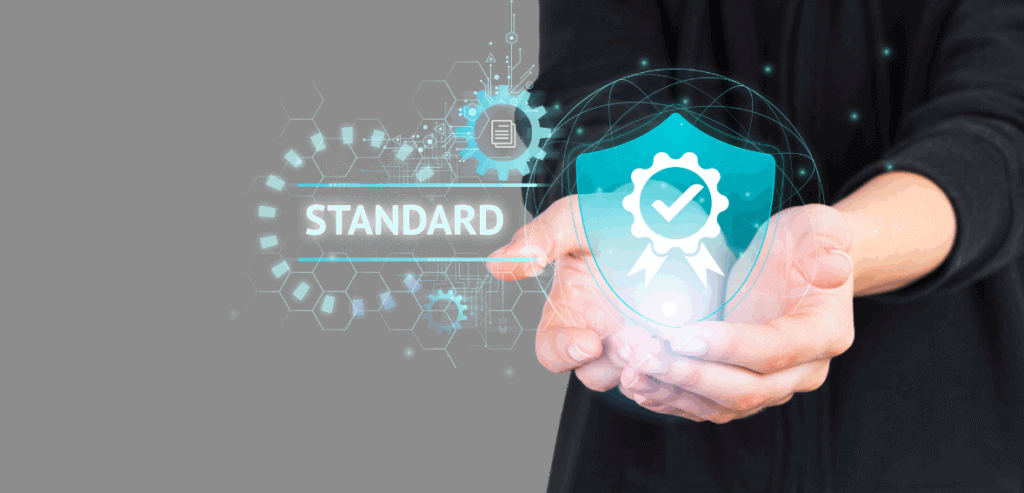
By Sharon Hudson July 9, 2025
The hospitality industry has always been centered around trust. From welcoming travelers to handling personal preferences and payment details, hotels are built on the foundation of secure and smooth guest experiences. In today’s digital age, this trust increasingly hinges on how well a hotel protects its guests’ financial information. That’s where PCI compliance becomes vital.
For large hotel chains with robust IT departments, staying compliant with security protocols may be a streamlined process. But for small and independent hotels, understanding and implementing PCI compliance can feel daunting. Many operate with limited resources, smaller teams, and minimal technical support. Yet, they still process credit card payments daily, making compliance with Payment Card Industry Data Security Standards (PCI DSS) a necessity.
What Is PCI Compliance?

PCI compliance refers to following the guidelines set by the Payment Card Industry Data Security Standard. These rules were established by major credit card brands like Visa, Mastercard, American Express, Discover, and JCB to protect cardholder data.
Purpose of PCI DSS
The primary goal of PCI DSS is to reduce fraud and data breaches. These standards apply to all entities that store, process, or transmit cardholder data. For small and independent hotels, this includes using point-of-sale systems, online booking portals, and mobile payment solutions.
Even if your hotel processes only a handful of credit card transactions daily, you are still required to comply with PCI DSS. Non-compliance may result in fines, increased transaction fees, or being barred from processing cards altogether.
Core Requirements of PCI DSS
There are twelve core requirements within PCI DSS, organized under six categories. These include installing firewalls, encrypting data, using secure systems, limiting access to cardholder information, and monitoring networks for vulnerabilities. For smaller hotels, the most relevant requirements focus on ensuring secure systems and working with trusted third-party vendors.
Why Small Hotels Must Prioritize PCI Compliance
Small and independent hotels might think they fly under the radar when it comes to cybercrime. Unfortunately, the opposite is true. Hackers often target smaller businesses precisely because they may lack sophisticated security measures with outdated payment systems.
The Rising Risk of Data Breaches
The hospitality industry has seen numerous breaches in recent years, many of which have involved small properties. These incidents are not only costly in terms of financial penalties, but they also damage reputation. A single security breach can erode years of built trust with loyal guests.
Financial and Legal Consequences
If your hotel is found to be non-compliant, and a breach occurs, the liability can be overwhelming. Credit card companies can impose steep fines. You might also be required to pay for forensic audits, replace compromised cards, or reimburse banks and affected guests.
Even if no breach occurs, failing to prove PCI compliance can result in monthly penalty fees from your acquiring bank. For smaller hotels with tighter margins, this financial burden can become unsustainable.
Competitive Advantage
On the positive side, being PCI compliant can become a selling point. In a marketplace where data privacy concerns are growing, showing that your hotel takes security seriously can improve guest confidence and booking conversions. Many corporate clients and travel agencies also prefer to work with PCI-compliant properties.
Understanding the Levels of PCI Compliance
Not all businesses face the same compliance requirements. The PCI Security Standards Council has categorized merchants into four levels based on the volume of card transactions per year.
Merchant Levels Overview
Most small and independent hotels fall under Level 3 or Level 4:
- Level 3: 20,000 to 1 million e-commerce transactions annually
- Level 4: Fewer than 20,000 e-commerce transactions or fewer than 1 million total transactions per year
These levels determine the specific reporting requirements. Typically, Level 4 merchants need to complete a Self-Assessment Questionnaire (SAQ) and may require a quarterly vulnerability scan from an approved scanning vendor (ASV).
Choosing the Right SAQ
There are multiple SAQ types, from SAQ A to SAQ D, depending on how your hotel handles cardholder data. For example, if you use a fully hosted payment gateway and do not store card data, you may qualify for SAQ A, the simplest form. If you store card data or run your own payment systems, you may need to complete SAQ D, which is more detailed.
Selecting the right SAQ is essential to avoid over-reporting or under-reporting your risks.
Common PCI Compliance Challenges for Small Hotels

Despite the importance of PCI DSS, small hotels often face unique challenges in staying compliant. Limited staff, budget constraints, and a lack of technical expertise can all contribute to gaps in security practices.
Using Outdated Systems
Many independent properties still rely on legacy reservation or point-of-sale systems that are not up to modern security standards. These systems may store data unencrypted or use outdated software versions, exposing vulnerabilities.
Insecure Wi-Fi Networks
Guest Wi-Fi and internal networks are sometimes run on the same system, increasing the risk of unauthorized access. Without firewalls, password protection, or network segmentation, hackers can exploit this shared environment.
Lack of Staff Awareness
PCI compliance is not just a technical issue. It also involves how staff handle cardholder data. Writing down card numbers, leaving terminals unlocked, or failing to log out of systems are all risks that can lead to non-compliance.
Steps to Achieve PCI Compliance in Small Hotel Operations

Although PCI DSS may seem overwhelming, achieving compliance is possible by breaking it down into manageable steps. With the right strategy and support, small hotels can protect their guests and reduce their liability.
Step 1: Identify How You Handle Cardholder Data
Start by mapping all the ways your hotel processes credit card payments. This includes front desk terminals, online booking platforms, mobile check-in apps, and back-office systems. Knowing where and how data flows is the first step toward securing it.
Step 2: Eliminate Unnecessary Data Storage
If you do not need to store cardholder data, don’t. Avoid saving numbers in spreadsheets, email threads, or on paper. Work with processors that tokenize and encrypt data so it never passes through your systems.
Step 3: Choose PCI-Compliant Payment Providers
Your payment gateway, processor, and POS vendors should all be PCI-compliant. Always ask for documentation or certification and ensure your contracts include data security responsibilities.
Step 4: Complete the Right SAQ
Based on your payment methods, select the appropriate Self-Assessment Questionnaire. Take the time to answer questions honestly and thoroughly. This document may be requested by banks or card brands in the event of an audit.
Step 5: Conduct Vulnerability Scans
If your hotel’s payment system is internet-facing, you will likely need to conduct quarterly vulnerability scans. These are done by Approved Scanning Vendors (ASVs) and help detect any security gaps in your network.
Step 6: Educate Your Staff
Train your employees on safe data handling practices. Teach them never to write down card details or share login credentials. Encourage strong passwords and regular system updates.
Step 7: Monitor and Maintain
PCI compliance is not a one-time event. Regularly review your systems, update expired software, and retrain staff as needed. Keeping a maintenance log can help you stay ahead of potential issues and prove due diligence.
The Role of Technology in Simplifying Compliance
For small and independent hotels, technology can be a powerful ally in achieving PCI compliance. Cloud-based platforms, integrated payment systems, and automation tools are making it easier than ever to stay secure.
Cloud-Based PMS and POS Systems
Modern property management systems (PMS) and point-of-sale (POS) tools often come with built-in compliance features. They may automatically encrypt data, restrict user access, and provide compliance reports.
Tokenization and Encryption Tools
Tokenization replaces sensitive card data with non-sensitive equivalents, making it useless to hackers. End-to-end encryption ensures that data is secure from the moment it is entered until it reaches the processor.
Third-Party Compliance Platforms
Some platforms offer managed PCI compliance services tailored for small businesses. These services guide you through SAQs, schedule vulnerability scans, and help maintain required documentation.
Working with Trusted Partners
One of the smartest ways for small hotels to manage PCI compliance is by partnering with experienced vendors and consultants. Not every independent property has the resources to manage everything in-house, and that’s okay.
Outsourcing Payment Processing
Consider outsourcing your payment infrastructure to a PCI-compliant gateway or payment facilitator. These providers take on the bulk of the compliance burden, allowing your hotel to focus on service and guest experience.
Consulting for Compliance
There are hospitality-focused consultants who can assess your current setup, recommend changes, and help you implement best practices. This is especially helpful during initial compliance or after a suspected breach.
Vendor Contract Clarity
Ensure that your vendor agreements clearly outline who is responsible for what aspects of data security. This includes backup protocols, incident response plans, and breach notifications. Shared responsibility must be defined.
Future of PCI Compliance in Hospitality
The standards for PCI compliance continue to evolve with changes in technology and threats. Small and independent hotels must remain adaptable to stay protected and competitive in the long term.
PCI DSS v4.0 and Beyond
The newest version of PCI DSS, v4.0, includes updates around multi-factor authentication, stronger password requirements, and risk-based evaluations. It encourages a continuous compliance mindset rather than a checklist approach.
Increasing Role of AI and Automation
Future compliance efforts will likely be aided by artificial intelligence tools that monitor transactions in real time, detect anomalies, and suggest policy updates. These technologies will become more accessible for smaller operators.
Shifting Toward Unified Guest Experiences
As hotels adopt omnichannel booking and check-in experiences, the importance of unified payment security grows. PCI compliance will play a foundational role in enabling these seamless, cross-platform experiences.
Conclusion
PCI compliance might seem like a complicated requirement, especially for small and independent hotel operators, but it is an essential part of doing business in today’s digital environment. It is not just about avoiding fines or ticking a regulatory box, it’s about protecting your guests, your reputation, and your long-term viability.
By understanding your risks, working with secure vendors, training your staff, and regularly reviewing your systems, even the smallest hotel can meet the PCI standards. In a world where guest expectations are high and data breaches make headlines, security is part of the service. And service, as small hotels know best, is everything.